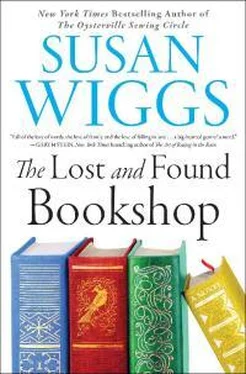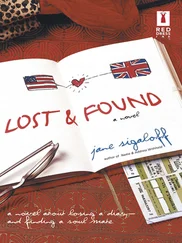Natalie felt a twist in her gut as she stared across the table at Helena Hart, attorney-at-law. She was the only lawyer Natalie had been able to find online who was willing to work without being given a giant retainer fee up front. “I don’t understand.”
“It’s not yours to sell.”
“It’s . . . That makes no sense. My mother left me everything, according to the will I found in her files.”
“That’s true,” said the lawyer, “and the document you showed me is certainly valid. You’re the only beneficiary named. But I’m sorry to say that, based on the records provided, the only thing your mother left to you were her personal effects . . . and her debt. A deceased person’s debt can be recouped from their estate—assuming there’s something of value in it—although you wouldn’t be personally responsible for paying for it.”
Natalie’s stomach churned faster. The deeper she peered into her mother’s records, the more little nightmares she discovered. The crushing debt included unpaid back taxes and bills, ignored notices, a scary balloon loan coming due. Her mother had borrowed from a private lending firm at an exorbitant rate. “I’m aware of the debt. There’ve been some major medical expenses related to my grandfather. The shop’s operating expenses are steep. My mother wasn’t a bad person,” she told Helena. “She just wasn’t focused on bookkeeping details. But the physical assets, the bookstore inventory, the building itself—”
“Those did not belong to your mother. Both are in the sole possession of your grandfather, Andrew Harper.”
Natalie absorbed this information in silence. “I wasn’t aware of that. It never occurred to me that . . . I guess I always assumed she was the owner of the business, if not the building.”
Ms. Hart shook her head. “Not even a partner. From my reading of the records, they never had a formal partnership agreement. Your grandfather is sole proprietor of the business.”
“Wow. I had no idea.”
“There’s a bit of possibly good news. It’s a listed building in a landmark district. It’s in the National Register of Historic Places. That means it qualifies for a fifty percent reduction in property taxes. You can get further tax relief with a preservation easement, and a large rehabilitation tax credit for restoration work. All the work would have to be done by a qualified restoration specialist, of course.”
“Thanks, I’ll look into that, for sure. I’m not optimistic, though. ‘Qualified restoration specialist’ sounds like it comes with a high price tag.” She thought about the creaky woodwork, the ancient roof, the clanking plumbing. The depleted bank accounts.
“Then perhaps your best option is to persuade your grandfather to sell.”
“I’ll have to explain all this to him. But if I know my grandfather, I know he would never agree to sell.” Natalie was absolutely certain of this. “He’s lived there all his life. Literally. His parents raised him in that very building, and he raised my mom there. It’s the only home he’s ever known.”
“I see.” The lawyer cleared her throat. “Not to be insensitive, but . . .”
When someone apologized in advance for being insensitive, it was certain that the next thing they’d say would be insensitive. Natalie braced herself. “But what?”
“How old is your grandfather? And how’s his health?”
“He’s seventy-eight. He fell and broke his hip a few months ago and had to move to the ground-floor apartment. He gets around with a cane.”
“What about his mental health?” asked Ms. Hart.
Natalie paused, feeling in some way disloyal for discussing Grandy with this stern-faced stranger. “He’s having memory issues. My mother said he’s been different since the surgery. He’s forgetful these days. He’ll freely admit that—”
“Is there a diagnosis of dementia, then? Because that could actually work in your favor. Showing diminished mental capacity can be a way to take over guardianship and assume general durable power of attorney.”
“Take over? It’s a legal maneuver?”
“It’s a process. A petition is filed, and the court renders a ruling.”
“So I’d have to get a court order declaring my only living relative, a man who has loved and supported me all my life, is incompetent. And then I take everything from him.”
“You’re assuming responsibility for his well-being and quality of life. Fair warning, though. The legal process of being appointed conservator is time-consuming, intricate, exhausting, and expensive.”
“Oh, joy.”
“There are good reasons to have a power of attorney. It will protect you and your grandfather both.”
The lawyer was probably right. Natalie conceded that. But in the wake of Grandy’s loss of his only child, she was not going to take one more thing from him. She stood up and gathered her papers. “Thank you for your time,” she said.
She didn’t know why she was thanking the woman. She was sure she would get a bill for it.
* * *
Natalie took her grandfather to Sunday brunch. It had been a tradition for as long as she could remember—Grandy, May Lin, Mom, and Natalie went to brunch together every Sunday, up until she moved to Archangel. If money was tight, it would be French toast and berry compote at Mama’s on Washington Square. If they were feeling more flush, they’d take the Geary bus to the buffet at Cliff House, an imposing concrete behemoth perched above the Pacific between Ocean Beach and the old Sutro Baths.
She used to love going to Ocean Beach, not just for the scary, crashing waves and the throaty roar of the surf, but for the fun they had, rain or shine. In fine weather, she’d run along the beach, and she and her mom would kick off their shoes and wade in the chilly surf. In stormy weather, they’d sit by the massive fireplace, drinking cups and cups of tea while playing Wild Card Rummy. Natalie and May Lin always hoarded their wild cards, while her mom and Grandy played them immediately. Because, Mom would explain, if you don’t play the wild card now, you might never get the chance.
They took a taxi to the Cliff House. Not because Natalie was feeling flush, but because she wanted a quiet, beautiful spot to have a serious conversation with her grandfather. Although the place had been updated, the views from the Terrace Room had not changed in decades.
Over fluffy omelets and brioche bread pudding smothered in blueberry compote, she laid out the situation for Andrew. He listened politely as she explained the back taxes, the overdue balloon payments, the looming bills, the needed repairs, and the dire cash-flow situation.
Grandy accepted a refill of his coffee with a smile at the waiter. When he picked up his mug, his hand trembled so much that the coffee spilled. Natalie mopped it up with a napkin. “Are you all right?”
He glowered at the half-full mug. “Hardly. Staying in business has always been a challenge. Even when I had the typewriter shop, there were challenges. My father used to tell me how he scrimped and saved for ten years and then launched his apothecary business at the height of the Great Depression. Somehow, he survived.”
“I wish I remembered them better,” she said. “Great-Grandpa Julius and Granny Inga. He used to give me root beer barrel candies, and Granny had two canaries in a cage. I was so little when they passed away.” Natalie made herself pull the conversation back on track. “I went to see a lawyer about Mom’s will,” she said. “I never knew you were the sole owner of the building and bookstore.”
“It came to me from my father,” he said. “It was meant to go to your mother, and, I assume, to you after that. Things did not occur in the proper order.”
Читать дальше












